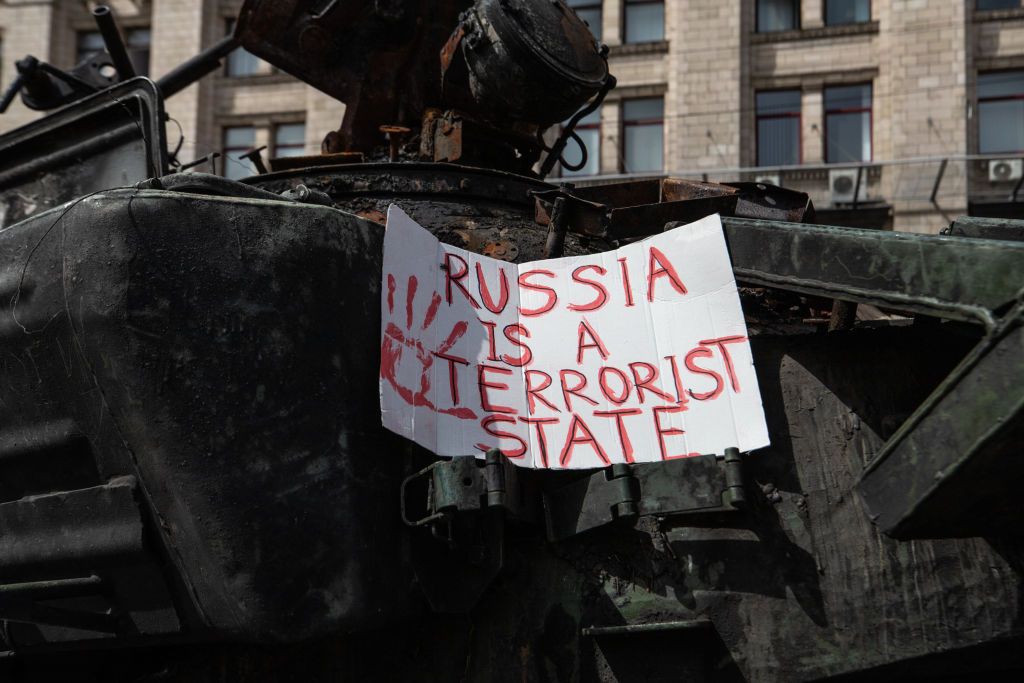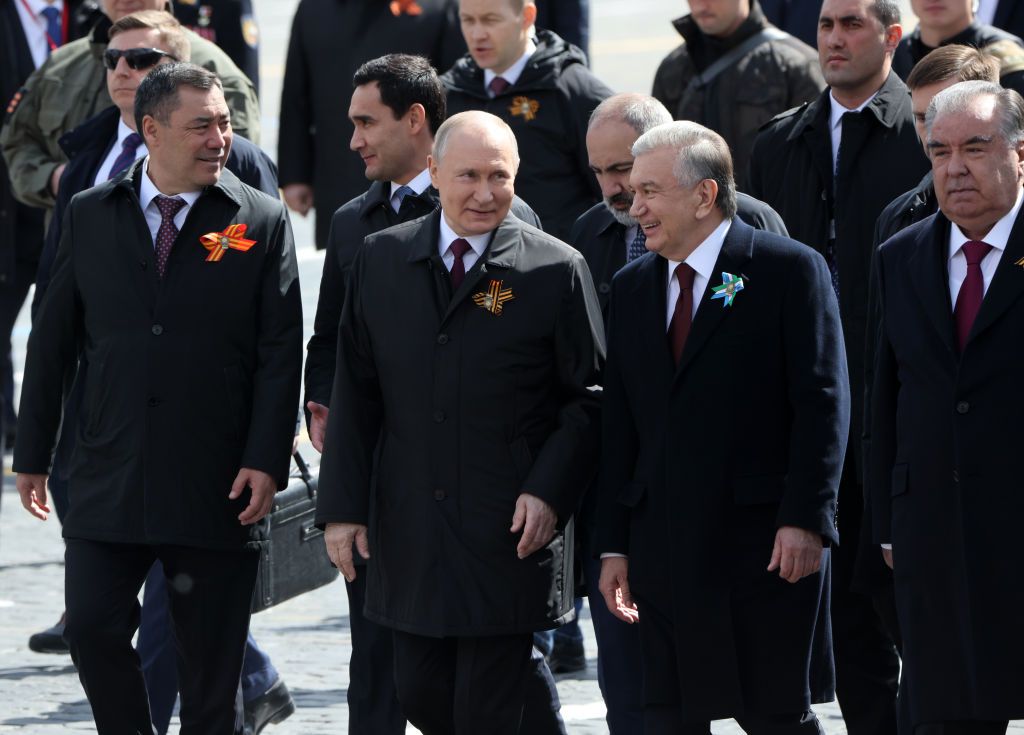Mykhailo Zhernakov: How a draft law risks putting Ukraine’s Constitutional Court under full political control

Editor’s Note: The opinions expressed in the op-ed section are those of the authors and do not purport to reflect the views of the Kyiv Independent.
At the end of April, the Verkhovna Rada registered draft law No. 9225, which further changed the procedure for selecting judges of the Constitutional Court of Ukraine (CCU). Spoiler alert: the draft law will establish the government’s complete political control over the CCU.
“This has already happened,” the attentive reader will say. At the end of 2022, the Parliament adopted Law No. 2846-IX on updating the competition procedures for the Constitutional Court, which was criticized by our Western partners and the public.
The new draft law is supposed to correct the mistakes of Law No. 2846-IX, but it only worsens the already-existing procedure.
Control of the CCU under the guise of European integration
Introducing a transparent, competitive procedure for selecting the Constitutional Court’s judges is the first of seven priorities set up by the European Commission for Ukraine to maintain its EU candidate status and open accession negotiations.
Law No. 2846-IX, adopted in December 2022, oversaw the creation of the Advisory Group of Experts (AGE) – a body that should conduct a preliminary selection of all CCU candidates. The AGE consists of six members: three independent international experts and three members appointed by the President, the Parliament, and the Congress of Judges.
The European Council’s Venice Commission (VC) recommended in December 2022 the inclusion of a seventh member under the AGE’s international quota. EU representatives have repeatedly voiced the same opinion.
Ukrainians support the same model: as a survey conducted in 2023 by the Kyiv International Institute of Sociology shows, more than half of Ukrainians believe that independent international experts should have the casting vote in selecting the CCU’s judges.
The concept behind implementing international experts’ casting vote is to ensure the commission’s independence.
The AGE’s current model does not allow decisions to be made without the votes of political appointees. Registered draft law No. 9225 still provides for the AGE’s six-member model. Furthermore, it introduces a novel requirement: For a candidate to pass the interview successfully, they must receive the votes of at least two Ukrainian political appointees.

Why the AGE’s 6-member model is flawed
The authorities are trying to argue that the six-member model, or its variants, is effective based on its previous use in other competitions, like for the National Anti-Corruption Bureau of Ukraine (NABU), High Council of Justice (HCJ), Specialized Anti-Corruption Prosecutor’s Office (SAPO), and the High Qualification Commission of Judges (HQCJ).
However, with this model, there is a high probability of appointing politically biased candidates. While such a model worked during the SAPO and HQCJ competitions, it led to ambiguous results in those of the HCJ and NABU. In the last one, for example, the three best candidates did not make it to the finals – those that international experts and their Ukrainian counterparts were able to reach a compromise on did.
International experts have rarely exercised their right to cast a vote. They have been reluctant to confront their Ukrainian counterparts and risk harming further cooperation. As a result, the quality of the competitions’ final decisions has been somewhere between the EU’s high standards and stable Ukrainian practices.
Given the importance of the CCU’s reform and its key role in ensuring Ukraine’s rule of law, precluding any possibility of the AGE performing under a similar model is imperative.
However, draft law No. 9225 fails to address this issue. It does not provide for the inclusion of a seventh member in the AGE, nor does it provide international experts with the right to the casting vote.
Instead, the proposed legislation mandates that a candidate must secure at least five out of six votes, thereby necessitating the approval of two political appointees. This further reinforces the influence of Ukrainian politicians in the AGE and extinguishes the prospects for politically impartial candidates to be appointed to the CCU.

The CCU's 10 ‘Horsemen of the Apocalypse’
Currently, five of the CCU’s judges are politically loyal to the President and his political party. DEJURE has previously outlined the circumstances surrounding the appointment of these four judges, namely Oksana Hryshchuk, Oleksandr Petryshyn, Viktor Kychun, and Olha Sovhyria.
Furthermore, the fifth politically loyal judge, Viktor Kolisnyk, worked for almost 15 years at the Yaroslav Mudryi National Law University’s Constitutional Law Department before his appointment, alongside Kychun and the President’s CCU representative and Servant of the People MP Fedir Venislavskyi. Kolisnyk has also displayed a voting pattern aligned with the CCU’s aforementioned judges.
Five more seats in the CCU are currently vacant. This includes the three vacancies that arose in December 2022 due to the voluntary resignation of three judges appointed under the parliamentary quota before the end of their tenure – a matter that has already drawn the G7 Ambassadors’ attention.
If the six-member AGE model is preserved, there is a significant possibility that the majority of the CCU’s judges, i.e., 10 out of 18 judges, will be fully subject to political control for several years, given that a judge’s tenure at the CCU spans nine years.
Why does the government want control over the CCU?
The argument for judicial independence as a critical component of the “checks and balances” system is apparent. However, in addition to these general principles, it is essential to consider how the authorities may wield a controlled CCU in actual political battles.
The decisions made by the Constitutional Court will be critical on a range of important post-war issues, including proposals for simultaneous presidential and parliamentary elections, which are likely to contribute to a further concentration of power that is already very high during wartime conditions. Ukraine’s Constitution deliberately separated these elections to prevent such a situation.
A politically loyal CCU will interpret the Constitution in a way that benefits politicians. Furthermore, the CCU will determine the constitutionality of draft laws related to the reintegration of Ukraine’s occupied territories and future membership in the EU and NATO, as well as all reforms pending before it — for example, on the Anti-Corruption Court and the land market.
Such risks are unacceptable for a democracy, especially one as young and vulnerable as Ukraine.
The collective West’s desire to help Ukraine in difficult times is understandable, and we are grateful for it. But receiving weapons and basic financial assistance, which come without special conditions, is one thing. Joining the privileged club of nations is another thing entirely – this requires Ukraine to meet a set of high standards.
Conflating these two processes is not only counterproductive but also dangerous. The EU is primarily a rules-based club. If we start by bypassing and bending these rules in the very beginning, then what is the point at all?













